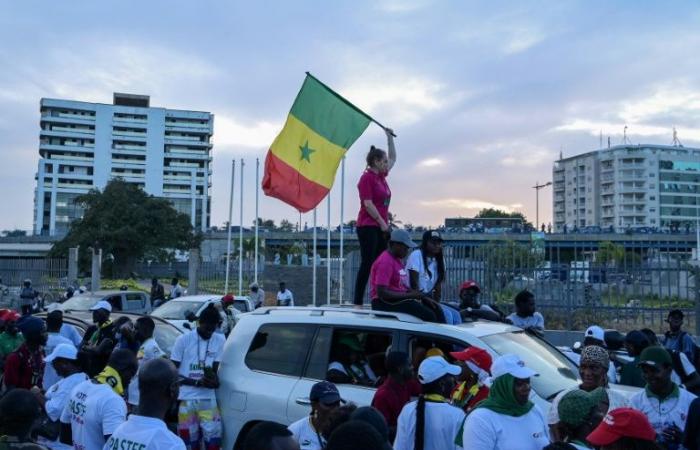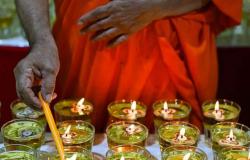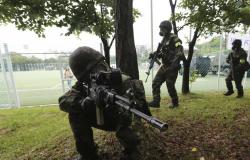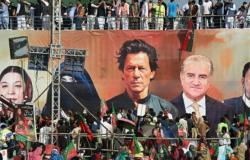The Senegalese elect their deputies on Sunday. Their leaders are aiming for the largest possible majority to implement the agenda of rupture and social justice with which they were brought to power eight months ago.
Bassirou Diomaye Faye was elected president in the first round in March, devoid of any executive experience but pulled to the top by the enthusiasm and aspiration for change of a young population tested by three years of political confrontation and economic crisis .
His fiery mentor Ousmane Sonko, who should have been in his place if his candidacy had not been invalidated, became Prime Minister.
For months, these advocates of “left-wing Pan-Africanism” led a conflictual coexistence with an Assembly still dominated by the former presidential majority. Mr. Faye dissolved it as soon as constitutional deadlines permitted, in September.
Around 7.3 million voters are called from 8:00 a.m. (local and GMT) to elect 165 deputies who will serve for five years.
They will decide whether or not to give the Faye-Sonko duo the means to keep their promises: to improve the life of a population, a large part of which struggles on a daily basis to make ends meet, to share with them the income from natural resources such as hydrocarbons. and fishing which would have been sold off abroad, fight corruption, transform the State and its justice…
Historically, the Senegalese are consistent in their choice of presidential and legislative elections and Mr. Sonko’s party of African Patriots of Senegal for work, ethics and fraternity (Pastef) is the favorite, experts say.
Mr. Sonko multiplied during three weeks of campaigning across the country, promising projects and investments in the regions where he passed, insulting his adversaries from within, exalting patriotism and national sovereignty in the face of hostile Westerners. according to him to his government.
As when he was an opponent, he fanned the embers to the point of calling for revenge on his attacked activists, before softening. Despite a virulent tone, violence was sporadic during the campaign.
– Dark picture –
Opposite, the opposition is dispersed, despite agreements between coalitions. Former President Macky Sall, shortening the period of reserve traditionally observed by his predecessors, campaigned remotely. His putative heir apparent, former Prime Minister Amadou Ba, defeated in the presidential election, presents his own list. The mayor of Dakar, Barthélémy Dias, captured some of the light by exchanging diatribes with Mr. Sonko.
They take up the grievance formulated by a certain number of Senegalese according to which Mr. Sonko spoke a lot and acted little. The person concerned denies this while arguing for the state in which he and Mr. Faye found the country and the multiple resistances to the undertaking of changing practices and the system.
Since their installation, the authorities have lowered the prices of rice, oil and sugar. They have launched all-out audits and the re-evaluation of agreements with foreign partners. They have initiated a justice reform and have just presented a project to transform the economy and public policies over 25 years.
The opposition accuses them of amateurism and a thirst for settling scores.
The cost of living remains a major concern, as does unemployment, at more than 20%. The new leaders are in turn confronted with the wave of these hundreds of compatriots who leave each month in canoes to seek a better future in Europe.
Public accounts are in the red and the International Monetary Fund has just suspended an aid program. Two rating agencies have unfavorably revised Senegal’s sovereign rating or outlook. Various projects are blocked and the private sector is awaiting payment of state debts.
Polling stations close at 6:00 p.m.
Reliable projections of the new Assembly could be available Monday morning thanks to the media.
Do you have a real estate project in mind? Yakeey & Médias24 help you make it happen!






